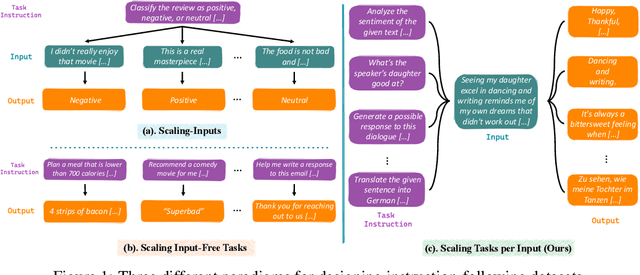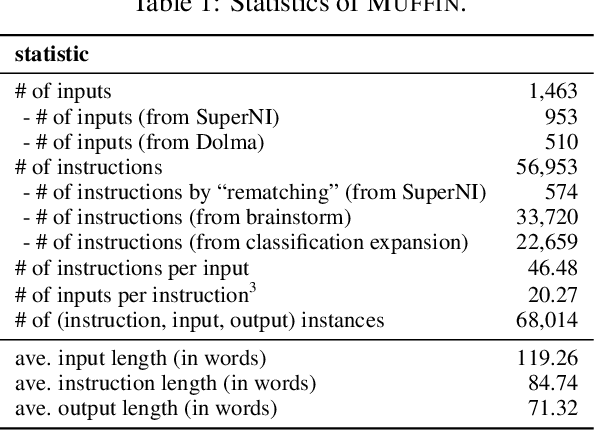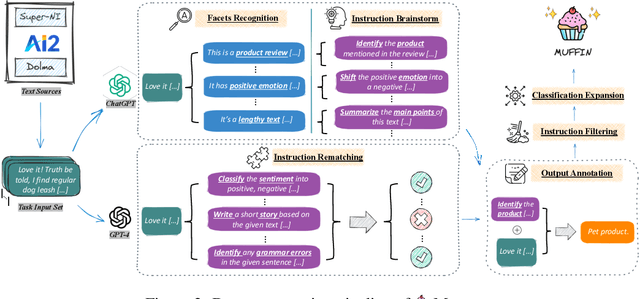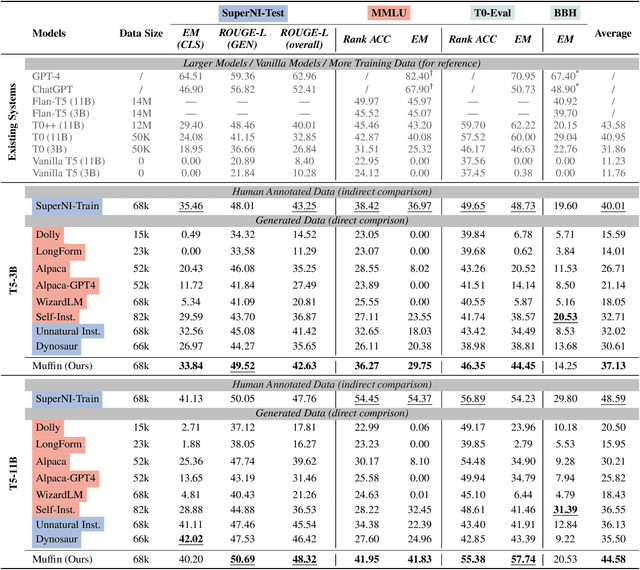Janice Ahn
Large Language Models for Mathematical Reasoning: Progresses and Challenges
Jan 31, 2024Abstract:Mathematical reasoning serves as a cornerstone for assessing the fundamental cognitive capabilities of human intelligence. In recent times, there has been a notable surge in the development of Large Language Models (LLMs) geared towards the automated resolution of mathematical problems. However, the landscape of mathematical problem types is vast and varied, with LLM-oriented techniques undergoing evaluation across diverse datasets and settings. This diversity makes it challenging to discern the true advancements and obstacles within this burgeoning field. This survey endeavors to address four pivotal dimensions: i) a comprehensive exploration of the various mathematical problems and their corresponding datasets that have been investigated; ii) an examination of the spectrum of LLM-oriented techniques that have been proposed for mathematical problem-solving; iii) an overview of factors and concerns affecting LLMs in solving math; and iv) an elucidation of the persisting challenges within this domain. To the best of our knowledge, this survey stands as one of the first extensive examinations of the landscape of LLMs in the realm of mathematics, providing a holistic perspective on the current state, accomplishments, and future challenges in this rapidly evolving field.
MUFFIN: Curating Multi-Faceted Instructions for Improving Instruction-Following
Dec 05, 2023



Abstract:In the realm of large language models (LLMs), enhancing instruction-following capability often involves curating expansive training data. This is achieved through two primary schemes: i) Scaling-Inputs: Amplifying (input, output) pairs per task instruction, aiming for better instruction adherence. ii) Scaling Input-Free Tasks: Enlarging tasks, each composed of an (instruction, output) pair (without requiring a separate input anymore). However, LLMs under Scaling-Inputs tend to be overly sensitive to inputs, leading to misinterpretation or non-compliance with instructions. Conversely, Scaling Input-Free Tasks demands a substantial number of tasks but is less effective in instruction following when dealing with instances in Scaling-Inputs. This work introduces MUFFIN, a new scheme of instruction-following dataset curation. Specifically, we automatically Scale Tasks per Input by diversifying these tasks with various input facets. Experimental results across four zero-shot benchmarks, spanning both Scaling-Inputs and Scaling Input-Free Tasks schemes, reveal that LLMs, at various scales, trained on MUFFIN generally demonstrate superior instruction-following capabilities compared to those trained on the two aforementioned schemes.
 Add to Chrome
Add to Chrome Add to Firefox
Add to Firefox Add to Edge
Add to Edge